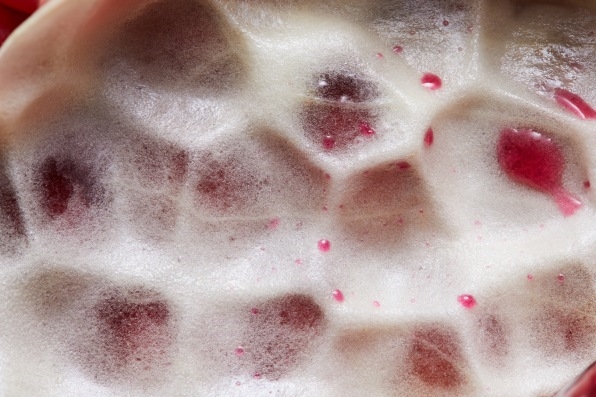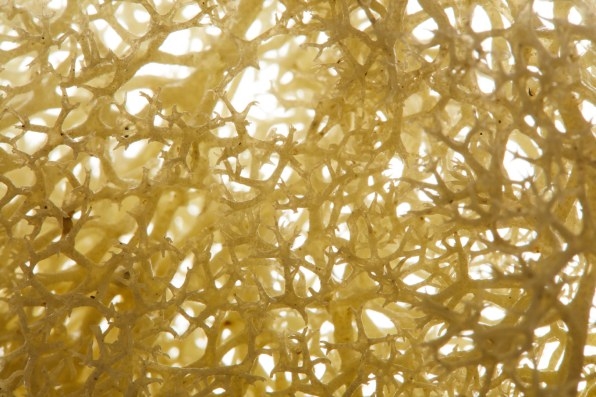This hoodie is made from pomegranate peels and completely biodegrades
Fast fashion is a great way to test out trends like vinyl pants, crop tops, or those tiny ’90s sunglasses. But unlike the latest fads, those clothes and accessories take decades or centuries to decompose.
Innovative men’s apparel brand Vollebak has come out with a hoodie that’s completely compostable and biodegrable. In fact, you can bury it in the ground or throw it into your compost along with the fruit peels from your kitchen. That’s because it’s made out of plants and fruit peels. Add heat and bacteria, and voilà, the hoodie goes back from whence it came, without a trace.
It’s important for consumers to consider a garment’s entire life cycle—from creation to end of wear—especially as global temperatures keep rising. As of 2016 there were more than 2,000 landfills in the U.S., and each giant pile of garbage produces gas methane and carbon dioxide as it starts to break down, which contributes to global warming. Chemicals from the landfill can also leak and contaminate groundwater, according to the EPA. In 2020, it’s time for sustainable fashion design (take this dress, for instance) that doesn’t add to the pollution problem, but actively combats it.

The Vollebak hoodie is made out of sustainably sourced eucalyptus and beech trees. The wood pulp from the trees is then turned into a fiber through a closed-loop production process (99% of the water and solvent used to turn pulp into fiber is recycled and reused). The fiber is then woven into the fabric you pull over your head.
The hoodie is a light green because it’s dyed with pomegranate peels, which typically are thrown out. The Vollebak team went with pomegranate as the natural dye for the hoodie for two reasons: It’s high in a biomolecule called tannin, which makes it easy to extract natural dye, and the fruit can withstand a range of climates (it loves heat but can tolerate temperatures as low as 10 degrees). Given that the material is “robust enough to survive our planet’s unpredictable future,” according to Vollebak cofounder Nick Tidball, it’s likely to remain a reliable part of the company’s supply chain even as global warming causes more extreme weather patterns.

But the hoodie won’t degrade from normal wear and tear—it needs fungus, bacteria, and heat in order to biodegrade (sweat doesn’t count). It will take about 8 weeks to decompose if buried in compost, and up to 12 if buried in the ground—the hotter the conditions, the faster it breaks down. “Every element is made from organic matter and left in its raw state,” says Steve Tidball, Vollebak’s other cofounder (and Nick’s twin brother). “There’s no ink or chemicals to leach into the soil. Just plants and pomegranate dye, which are organic matter. So when it disappears in 12 weeks, nothing is left behind.”

Compostable apparel will continue to be a focus at Vollebak. (The company previously released this biodegradable plant and algae T-shirt.) And the founders are looking to the past for inspiration. “Ironically, our ancestors were far more advanced. . . . 5,000 years ago, they were making their clothes from nature, using grass, tree bark, animal skins, and plants,” Steve Tidball says. “We want to get back to the point where you could throw your clothes away in a forest and nature would take care of the rest.”
Fast Company , Read Full Story
(27)



